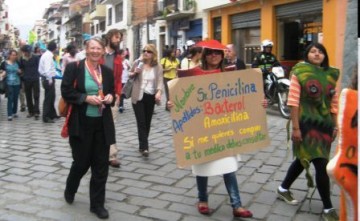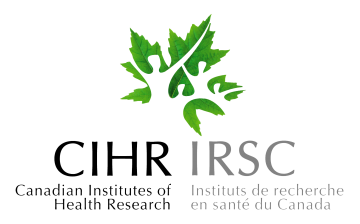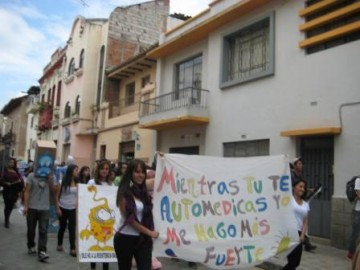
Parade of children wearing microbes costumes in Cuenca, Ecuador. GHRP student Bjorn Stime is also participating.
Dates:
2011-2015
Funded by:
 |
Canadian Institutes of Health Research (CIHR) |
Partner Organizations and Researchers:
Judith Marcuse, Simon Fraser University
Jennifer Spiegel, Concordia University
University of Andina Simon Bolivar (UASB), Ecuador
Project Description
The spread of antimicrobial resistance is now a major public health threat driven by many interconnected factors, in particular misuse of antimicrobials for human and veterinary use, cultural conceptions, diagnostic uncertainty, economic incentives, inadequate training of health staff, and advertising from the pharmaceutical industry. Little research has targeted low and middle income countries, and little is known on the effectiveness of community-based interventions. We thus aim to ascertain whether and how applying an ecosystem approach, considered a milestone in Canadian public health research, with its principles of transdisciplinarity, equity, participation and sustainability, can improve antimicrobial use and reduce the prevalence of infectious disease.
This project builds on a solid partnership with indigenous communities, and will contribute important information on effectiveness of community-based campaigns to promote antibiotic stewardship and reduce infectious disease transmission in low and middle income countries, using a rigorous study design. The study will also add to world knowledge on how to design, implement and evaluate a community-based population health intervention using an ecosystem health approach.
Publication
The brochure for the antimicrobial stewardship can be viewed here.


